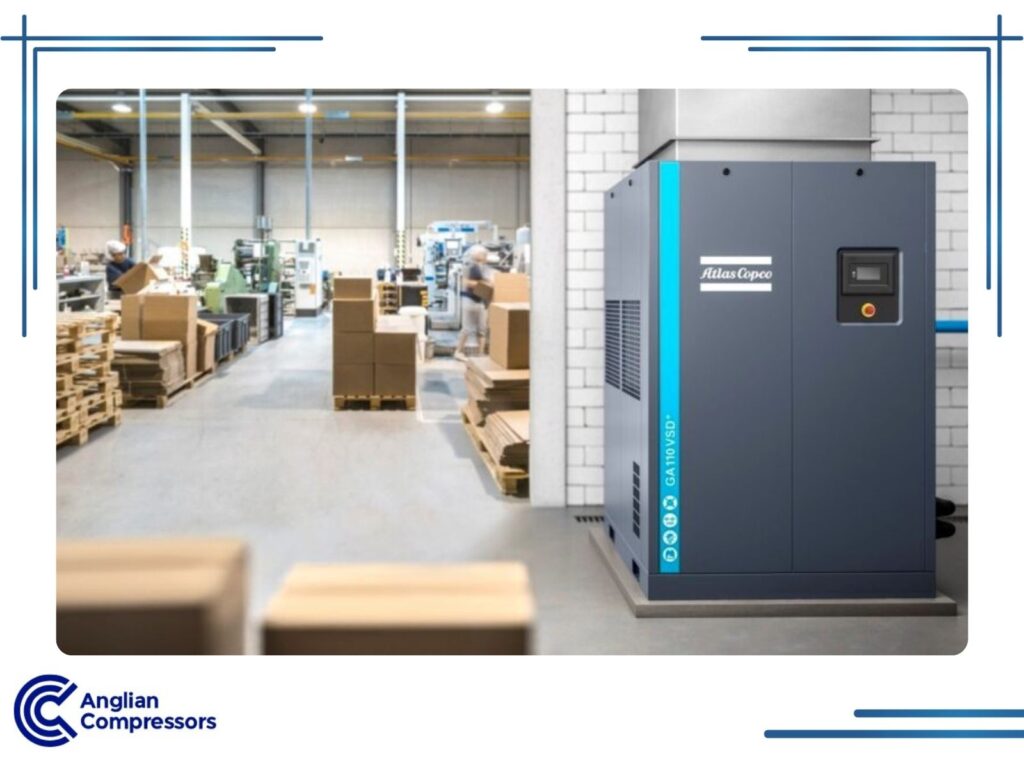Air Compressors in the Pharmaceutical Industry
The pharmaceutical industry is an essential part of modern life. Many people have a medicine cabinet with a selection of tablets and liquid medicines to deal with common ailments like an upset stomach or a self-inflicted headache. Others need medicines to assist recovery from serious illness, or even to stay alive. But making safe, effective medication for people is not an easy task and demands an exacting manufacturing process.
Compressed air is a critical part of all pharmaceutical product manufacturing. From the initial production of tablets and capsules, lozenges and syrups, and creams and lotions, to the packaging at the end, air compressors in the pharmaceutical industry do a lot of work.
And they have to work in an industry that is very highly regulated. Bodies like the UK’s Medicines and Healthcare Products Regulatory Agency, the EU’s European Medicines Agency, and the US Food and Drug Administration, not only license drugs but also take a keen interest in the pharmaceutical manufacturing process.
Table of Contents
The importance of the pharmaceutical industry
The British pharmaceutical sector is not just good for our health, it’s good for the nation’s economy. The world’s largest pharmaceutical companies all operate here, creating employment and generating billions of pounds of revenue. The UK is a global research and development hub; about one-fifth of the world’s most-used drugs were developed in the UK.
But like any industry, at it’s heart, the pharmaceutical sector relies on consistent and reliable processes. Unsurprisingly, it makes extensive use of compressed air solutions and has some of the highest compressed air standards of any industry.
The challenge for the sector and the air compressors it uses is meeting those rigorous standards. Drug manufacture requires consistency, so medications always have a reliable dosage. And they need to be pure from contaminants, even a seemingly harmless drop of water, can mean ineffective or dangerous medication and a wasted production run.
How air compressors are used in pharmaceutical manufacturing
Compressed air is incredibly versatile in manufacturing, and that versatility applies to pharmaceuticals, too. It is an ideal solution for managing drug components. These are frequently handled in dry powder form, and compressed air is an effective way to move it around.
It can also power mixers, helping to ensure an even combination of drug components — a critical task when often only a tiny part of most tablets is the active ingredient, with the rest used for delivery and release in the body.
When tablets are made, compressed air can speed up the drying and hardening of the pill and, again, move it along the process. Compressed air is used during packaging processes, where it can handle almost any packaging, boxes, plastic containers or bottles, ensuring they are filled and moved with precision.
There are also uses that are not directly involved in manufacturing. Compressed air can be used to help maintain cleanroom environments, keeping surfaces and even the ambient air free from dust and the smallest particles that might contaminate drugs. And because compressed air systems can have incredibly high air quality, it does all this without the risks that might come from manual or mechanical handling.
The benefits of using compressed air
Of course, compressed air is not the only solution for pharmaceutical production. However, it is one of the best.
Compressed air can offer precision in mixing. This is not just the proportions but also how well components are distributed. Known as homogenisation, the ingredients of a drug must be spread evenly, to ensure a steady dosage, and to avoid the risk that a batch of badly mixed tablets contains a lucky dip of placebos and overdoses.
Compressed air also offers significant benefits in reducing contamination. It can be used to move and mix components with no physical contact. This means there is less opportunity for contamination. It also reduces maintenance because there is no physical tool that may need cleaning, repairing, or replacing.
Filters will capture particles, like pollution in the air, leaving harmless water — from the vapour in the air — as the system’s main waste product. Even if used as a nitrogen generator, the only additional waste is oxygen.
And a compressed air system is remarkably cost-effective. Compressors have a lengthy service life, and will continue working reliably, fulfilling many functions long after alternative equipment has failed.

Getting oil-free compressed air
The compressed air industry is full of options. Because of the risk of contamination in pharmaceutical manufacturing, many users opt for oil-free air compressors. This guarantees class 0, oil-free compressed air, and is ideal for compressed air that has either direct contact or even indirect contact, with drugs. However, with the correct filtration, it’s still possible to meet the class 1 air purity standard, which has less than 0.01 mg/m³ of oil, and can be used to power tools or machinery at a lower cost.
The best approach is to use the air compressor that is best suited to the task. At Anglian Compressors, we offer a full design and installation service. That means we can help you select a compressor that meets the demands you will make of it, and an installation that will work with your processes.
It’s also important to ensure that compressors are regularly and properly serviced. Getting class zero compressed air with a new compressor is one thing; you have to be sure that you meet that same high-quality air standard every single time you use it.
Regular servicing should include not just replacing filters, but thorough testing of the compressor’s efficiency and the purity of the compressed air or gas it produces.
Our service contracts mean that every call will be accompanied by a full inspection and audit of your equipment, leaving you with the confidence and proof that you are meeting the highest standards expected by your regulators.
The final customers of the pharmaceutical industry’s end products demand the best. Whether it’s alleviating minor symptoms or treating major ailments, they need to know that their medications do what they are meant to do. And to provide that perfect solution, you have to ensure that your air compressors do exactly what they are meant to do, too. Anglian Compressors are here to make sure that’s precisely what happens.


